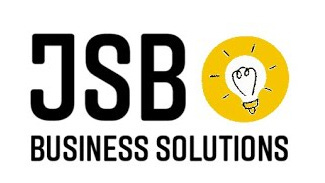Playing to Win: Gamifying Business Success
Defining what success looks like for your business isn’t just about setting ambitious targets; it’s about creating a vision that’s as compelling as the goal of winning a championship game.
Think about the games you love to play. Maybe it’s a weekend basketball game with friends, board games with your children, or an immersive video game you can’t wait to conquer. When you step onto the court, set up the board, or power up your console, there's one clear motivation at play: you want to win. You instinctively strategize and learn the game’s rules, driven by an intrinsic desire to achieve success.
What if we could apply this playful but powerful mindset to our businesses? Let’s dive into how gamifying your approach to business can help you stay motivated, improve your skills, and ultimately achieve greater success.
The Desire to Win
When was the last time you entered a game, a friendly competition, or even a casual sports match without any urge to win? Probably never. We’re wired with a natural competitive spirit that fuels our drive to succeed. This same energy—the thrill of playing to win—can be a powerful motivator in business. However, unlike games with simple outcomes, “winning” in business isn’t always immediately clear. So, it’s essential to first define what winning looks like for you and your team.
In Practice: Start by setting specific, achievable goals. What does “winning” mean this week, this month, or this year? It could be hitting a revenue target, landing a certain number of clients, or achieving a set level of customer satisfaction. Defining what success looks like for your business isn’t just about setting ambitious targets; it’s about creating a vision that’s as compelling as the goal of winning a championship game.
Putting in the Reps
Just wanting to win isn’t enough—you have to prepare for it. Think about your favorite athletes or professional gamers. They put in countless hours to hone their skills. Whether it’s shooting free throws, leveling up avatars, or practicing their poker face, they engage in repetitive, strategic activities that enhance their chance of success.
In business, consistency is key. This is where gamification becomes powerful: if you approach business tasks as if they were game moves, repetitive actions feel less like chores and more like steps to victory.
In Practice: Identify which “reps” will make a difference in your business. Are they cold calls? Social media posts? Training sessions with new team members? Just as a basketball player repeatedly practices free throws, you need to continually engage in the tactics that drive your business forward. Mastery, in business as in sports, is about consistent, focused practice over time.
Understanding the Rules of the Game
In games, rules are non-negotiable. Basketball players know that a shot from beyond the three-point line will yield three points. Video gamers understand the specific moves their avatars can make within each game. And board game enthusiasts know which moves earn them rewards. Accepting these rules allows players to focus on what matters: winning.
In business, though, we often resist rules—especially the “unspoken” ones in our industries. Yet, acknowledging and adapting to these guidelines can be a game-changer. Just like the rules in a sport or game, industry standards and market expectations often shape the path to success. Instead of resisting these rules, we can embrace them and strategize within their framework.
In Practice: Take time to identify and accept the “rules” of your industry. Are there regulatory requirements, customer expectations, or trends you need to consider? Rather than seeing these as obstacles, think of them as parameters within which you play to win. Knowing the rules frees you to focus on strategies that will actually move you closer to your goals.
Applying the Game Mindset to Business
Now that we’ve outlined these principles, it’s time to put them into action:
Define Your Win: Get specific about what success means to you. Is it a revenue milestone? A new client segment? Share this vision with your team so everyone is clear on what “winning” looks like.
Put in the Reps: Identify the daily or weekly tasks that make the biggest impact. Schedule these activities, track your progress, and celebrate small wins to stay motivated.
Embrace the Rules: Get comfortable with the regulations, industry standards, and market expectations that affect your business. The sooner you see them as guiding parameters, the sooner you can focus on strategies within them.
Business Is a Game You Can Control
Business success doesn’t have to be an elusive or intimidating goal. By adopting a game-like mindset, you can bring energy, strategy, and resilience to your work. Define what winning means, put in the reps, and recognize the rules of your industry to create a structure that supports your success.
Just like in a game, business is about progression, learning, and—above all—playing to win. So take control, make strategic moves, and remember that with consistency, focus, and a drive to win, success is within reach.
Bonus Example: “Revenue Rush Challenge” Game for Entrepreneurs
Objective: To create consistency around high-impact, revenue-generating activities by turning them into a game, helping you focus on the actions that drive growth.
Instructions:
Set Your Revenue Activity Levels:
Level 1 (Foundational Revenue Drivers): These are quick, low-effort tasks that help maintain momentum and initiate client relationships, typically taking 5-15 minutes. Examples include:
Sending follow-up invites to potential clients or partners
Requesting referrals from satisfied clients
Confirming upcoming appointments
Sending a personalized thank-you message to a recent connection
Level 2 (Pipeline Builders): These tasks require moderate time but significantly build your sales pipeline and influence potential revenue, usually taking 30-45 minutes. Examples include:
Conducting exposures or client presentations
Sending targeted invites to prospects for an event, demo, or webinar
Scheduling and confirming new appointments
Reviewing and refining your closing strategy based on recent results
Level 3 (Revenue Movers): These are high-effort, high-reward tasks that directly impact your revenue and involve engaging with high-potential clients. They usually take 1-2 hours. Examples include:
Hosting or presenting a sales presentation to a qualified audience
Attending a meeting where a final decision on a deal can be reached
Reviewing and optimizing your closing ratios, identifying steps to boost conversion rates
Following up on key referrals and closing on high-value prospects
Daily and Weekly Goals:
Begin each day with a target for points from completed tasks, such as 5 points, and a weekly cumulative goal, like 30 points.
Points are awarded based on task levels:
Level 1 tasks earn 1 point each.
Level 2 tasks earn 2 points each.
Level 3 tasks earn 3 points each.
By the end of the week, aim to reach your target points, balancing tasks across all levels.
Track and Reward Progress:
Track your daily points. At the end of each week, assess your overall progress to see if you met your weekly target.
Reward yourself for achieving the weekly goal. Small incentives like a coffee treat, break, or fun activity reinforce these revenue-generating habits and help maintain motivation.
Analyze and Adjust:
At the end of each week, review which tasks were most effective for generating revenue. Did certain activities improve your closing ratio, bring in referrals, or result in more appointments? Use these insights to adjust your task levels or focus on activities with higher returns.
Challenge Mode (Optional):
For an extra push, try increasing your daily point target or committing to an additional Level 3 activity. This builds resilience and prepares you for handling more high-value tasks over time.
Example Weekly Approach:
Early in the week, focus on quick wins by sending follow-ups and invites to fill your pipeline.
Midweek, conduct presentations and exposures, aiming to schedule a few key appointments.
Later in the week, prioritize high-impact tasks like attending closing meetings or optimizing your closing strategy.
Benefits:
The Revenue Rush Challenge keeps you focused on high-impact, revenue-generating tasks. By gamifying these activities, you’ll build a structured approach to achieve business growth and develop habits that contribute to a strong bottom line.
Take the first step towards elevated performance by scheduling your consultation with JSB Business Solutions. Answer a handful of questions by Clicking this link and schedule a day and time that works best for you.
The world around us wasn’t built by the exceptional. It was built by everyday people who were willing to do exceptional things. Go build something.

Thanks for reading The Grow Givers Project! Subscribe for free to receive new posts and support my work. And remember, sharing is caring.





